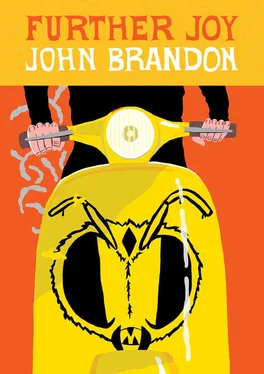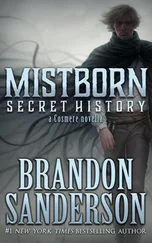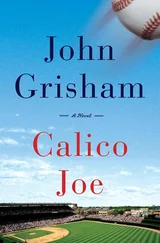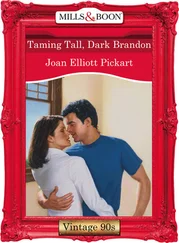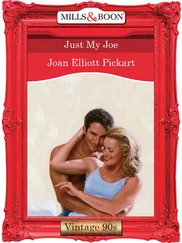Pauline had logged a few more fruitless phone calls, but eventually she returned to the police station in person. Bulletins had gone out. The car had been impounded, she was told, but she already knew that. The case file had been activated, but wasn’t being investigated currently, whatever that meant. The police force was understaffed and underpaid, Pauline was told. A cop with the rank of sergeant who looked fresh out of high school told Pauline that in cases like this the missing person was usually missing on purpose.
“Everybody keeps telling me that,” Pauline said. “I’ve heard that one roughly a dozen times.”
“She’ll turn up. Trust me. Sometimes people don’t call because they’re embarrassed, or they don’t want to be judged or whatever. They don’t want to have to apologize. But she’ll turn up.”
“She’ll turn up?” Pauline said. “She’ll turn up? That’s the plan when a bottle opener is lost. Or tweezers or something. You just wait for them to turn up.”
The sergeant gripped her gently by the arm for a moment, forbearing and sympathetic, and then left her in the lobby. He was wearing sneakers instead of boots and Pauline heard the squeak of the soles against the floor until a door closed behind him.
She sat down. On the wall was a board full of wanted men — some sneering, some blank-faced, some genuinely concerned about the course their lives had taken. Pauline had no idea what else she was supposed to do about Mal. She was sitting in a dingy, one-story police station, staring at the walls. Next to all the wanted men was another corkboard, this one crowded with articles confirming Palatka’s status as a famous speed trap. Beyond that was a gumball machine covered in dust.
By now the balcony was entirely off-limits, as if it didn’t exist. Pauline kept the back blinds closed tight at all times — the ones over the regular windows and the ones over the small window in the door. She didn’t want to see the wind chimes out there — though she often heard them — or the spot on the banister where Mal always used to sit. She didn’t want to contemplate the still undone deadbolt. Sometimes Pauline heard birds pecking around out there, looting what was left in the feeder, and sometimes the birds’ noises suggested something more alarming, fracases and fighting, cries of surrender. When this happened, she had no recourse except to turn on music and move to the front room.
It had been a few days since she’d talked to Herbie. Their conversation already seemed unreal, like it might not have happened at all. She might not have seen him harassing that old man. She might not have done that whiskey shot.
She wanted to exercise, or at least she thought it would be good for her. There was no decent health club in Palatka, of course. She owned no weights or workout mats. She spread a blanket on the floor and dropped to her stomach. She did three pushups and then a pain shot from her wrist to her elbow. She flipped and stretched her hamstrings. She could hear the tapping of raindrops starting on the roof. She did some yoga poses she remembered, difficult ones that were hard to hold for very long.
When she needed a break she got up and checked her email, knowing there would be something from the company she was freelancing for, and sure enough. The subject heading was DEADLINE 2??? Pauline stared at the computer screen for a long minute, wondering whether she wanted to open the email. She had wanted to be chastised, but now she was thinking better of it. She heard a sound, a small gust of wind finding its way in from outside, a hinge creaking, and when she looked up Herbie was standing in the front doorway grasping a single hibiscus. He was standing right there, clean-shaven now, looking bigger in her doorway than he’d looked in the bar, holding the flower by its long woody stem. He’d somehow found out where she lived. He hadn’t even knocked. Pauline had made an exit, and now he was making an entrance.
She didn’t feel particularly startled. Not like she should’ve. He had the flower in one hand and the other hand he’d placed on his hip, like he was modeling his clothes — those same shorts with all the pockets, his wireframe glasses. She felt equal to the idea of this strange man showing up in her living room. She’d been forcing herself to act like someone she wasn’t, but now she didn’t feel like she was playing a part. This moment felt real. She’d been invaded and she could deal with it.
“Are you taking guests?” he asked.
“I thought of something I should’ve said to you,” said Pauline. “In the bar, when you said you could observe me with your five senses, I should’ve said, ‘You’ll be lucky to use two or three.’”
“That would’ve been clever,” Herbie agreed. “But anybody can think of that stuff after they get home.”
“I want you to take me jogging. That’s how you can be of use.”
He looked behind him, at the rain, and pursed his lips. “Yeah, let’s go jogging. I can’t think of any reason why not.”
He stayed where he was but reached the hibiscus out toward Pauline, and she stepped over and took it from him. She found a tall, thin water glass in the kitchen to put it in. Herbie told her he’d stolen it from an old lady’s sun porch. He said if there was one thing he couldn’t tolerate, it was old ladies.
Pauline knew she didn’t have the upper hand in here. She wanted to get them outside. She yanked on running shoes and led Herbie out the door and down the stairs. She told him to run in front so she could keep an eye on him, and he winked at her and set a pace, leading them out onto the road. There were no sidewalks, so when cars came they ran in the weeds, their shins whipped red. Pauline heaved and spat for a time and then she settled in. They weren’t getting all that wet because of the oak branches that wound overhead. Only their shoes got soaked, pounding into the clay-colored puddles. Herbie was bowlegged. He maintained his pace faultlessly. Pauline focused on the back of his bobbing head. He was wearing a sleeveless T-shirt, and Pauline could see marks on his neck that could’ve been scratches from a person or could’ve been made by running through prickly foliage. Pauline wasn’t going to ask about the scratches. She wasn’t going to ask about the old guy at the Mexican restaurant because she’d never get a straight answer anyway. She wasn’t even going to ask how Herbie’s magazine story was coming. It would somehow be a display of weakness at this point, would somehow cost her leverage, to forsake spontaneity and put her focus on the mining of facts.
They loped past a parked cop car and the cop stared at them from inside, his expression both intense and vague. She had no idea how long they’d been running, but it was going to be night soon. Her hamstrings were itching with use; her calves were tight as balls of twine. They passed a pecan grove, then a hill of smoldering tires, the sky lightening and darkening. Pauline hadn’t paid attention to the turns they’d made and was surprised when the back of her apartment building came into view. They cut through the swamp on a berm of dry ground and bounded up the stairs. Herbie went in and collapsed on the blanket that was still spread on the floor. He slipped a couple soft glasses cases out of his pockets and chose a pair. They’d been in his pockets the whole jog, however many pairs of glasses and a case for each. Then he peeled his shirt off over his head, pried off his shoes. There was something bullying and presumptuous about how comfortable he was acting in her place, but now she enjoyed it. The smell of him. The space he occupied. His body without a shirt looked good. The muscles of his torso all showed but he didn’t seem like somebody who went to a gym.
She hung his shirt and socks over the back of a chair and set his shoes on a mat in the kitchen. “Hey, I have something for you,” she said. “I have something to give you.”
Читать дальше
